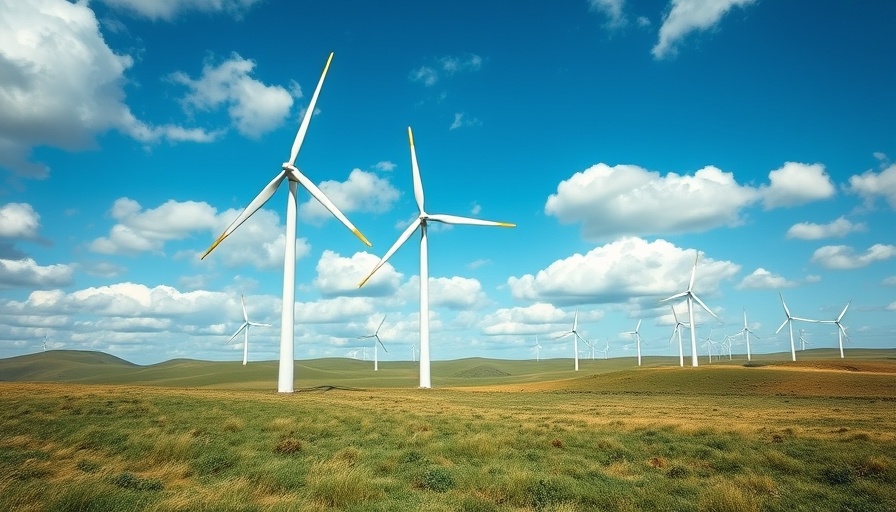
Exploring Clean Energy Strategies for Business Growth
In a dynamic shift towards sustainability, Clean Energy has made headlines with a non-binding offer to a European business, highlighting the potential of green investments in today's financial landscape. With global attention turning towards climate change and the urgent need for action, this move exemplifies the intersection of financial strategy and environmental stewardship.
This offer not only symbolizes a commitment to cleaner energy solutions but also opens up discussions about the broader implications for businesses in various sectors. Companies worldwide are increasingly recognizing that aligning with clean energy initiatives is not just about compliance; it is about capitalizing on emerging markets, enhancing brand reputation, and securing future opportunities.
The Financial Case for Clean Energy
Investing in clean energy is no longer seen merely as an ethical choice; it represents a robust financial strategy. Businesses can benefit from tax incentives, potential cost savings in energy consumption, and increased investor interest. For financial advisors and investment strategists, understanding clean energy's role in portfolio diversification is essential.
According to a report by the International Renewable Energy Agency (IRENA), the clean energy sector is projected to employ millions of people by 2030, creating significant opportunities for job growth. For investors, incorporating elements like renewable energy funds or green bonds can enhance investment strategies while contributing to a sustainable future.
Risks and Challenges in the Clean Energy Sector
Despite the promising landscape, it's crucial to weigh the risks associated with clean energy investments. Market volatility, regulatory changes, and technological challenges can impact profitability. Financial professionals should educate clients about these factors, emphasizing risk management as a critical component of any clean energy investment.
Moreover, investors should consider the importance of asset allocation. Balancing traditional investments with alternative investments in clean energy can hedge against inflation and market fluctuations, offering a safeguard for wealth preservation.
Future Predictions: The Road Ahead for Clean Energy Investments
The transition towards clean energy will not only reshape industries but also redefine financial markets. As countries implement stricter regulations on fossil fuels and provide incentives for clean energy technologies, proactive investors stand to benefit significantly. Embracing this shift will be vital, as governments worldwide aim to achieve net-zero emissions by 2050.
Furthermore, innovative technologies such as battery storage and hydrogen fuel development promise to enhance the viability and attractiveness of clean energy investments. Financial advisors should stay informed about these trends to better guide their clients in making strategic, forward-thinking decisions.
Engaging with the Clean Energy Narrative
As we move into a new chapter of energy production and consumption, businesses and investors need to engage with the clean energy narrative actively. Sharing success stories and tangible impacts of clean investments can inspire confidence and drive further interest from clients.
Overall, understanding the financial implications of clean energy investments will be crucial for individuals and businesses alike. Financial planners and advisors must ensure that their clients are prepared to capitalize on these trends while navigating the complexities of the evolving financial landscape.
As the financial world continues to embrace sustainability in its strategies, it's a pivotal moment for stakeholders to rethink their approaches and contribute to a greener economy. How will you align your financial planning with the emerging trends in clean energy?
 Add Row
Add Row  Add
Add 




 Add Row
Add Row  Add
Add 

Write A Comment